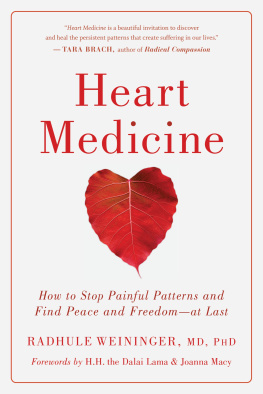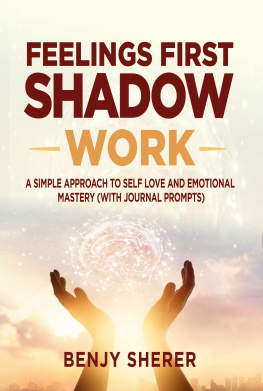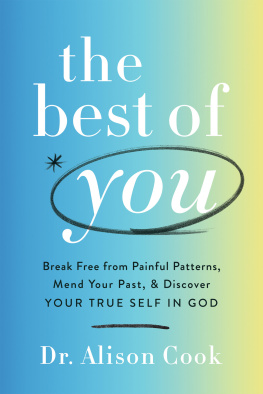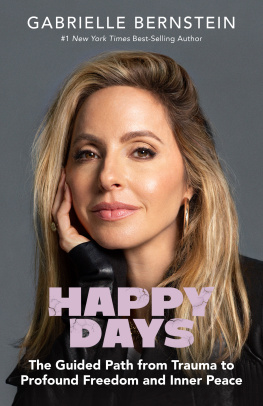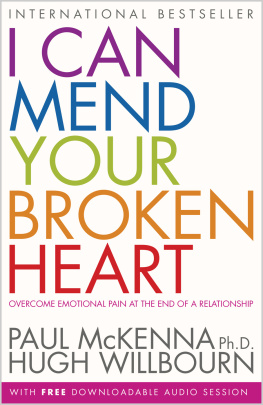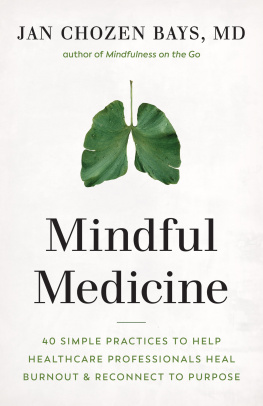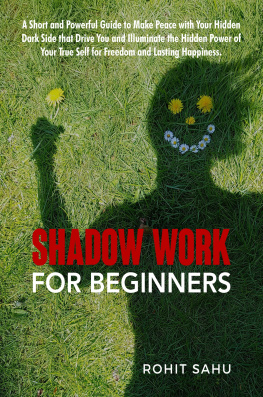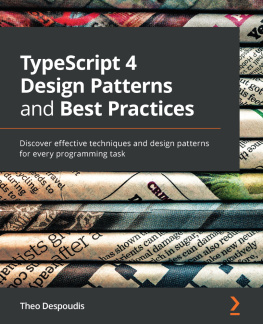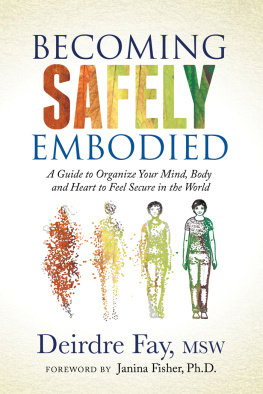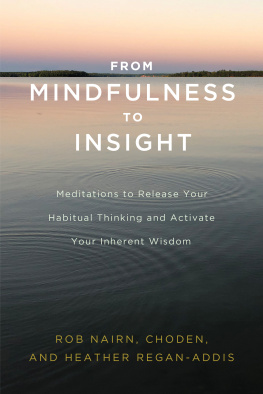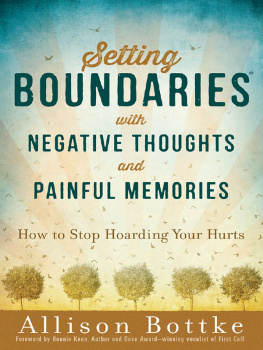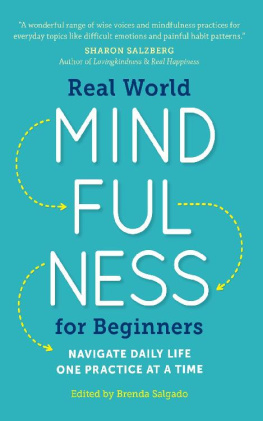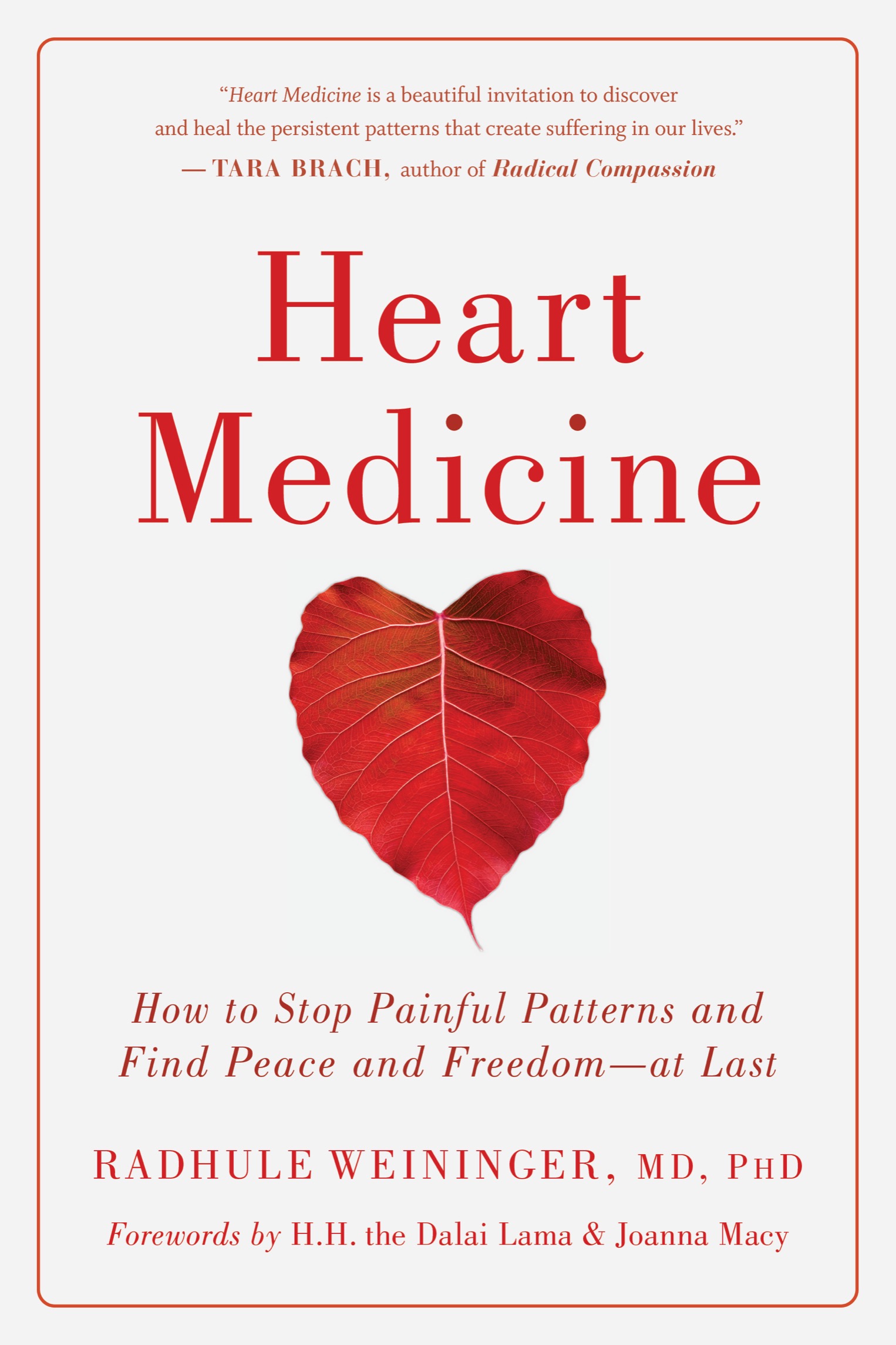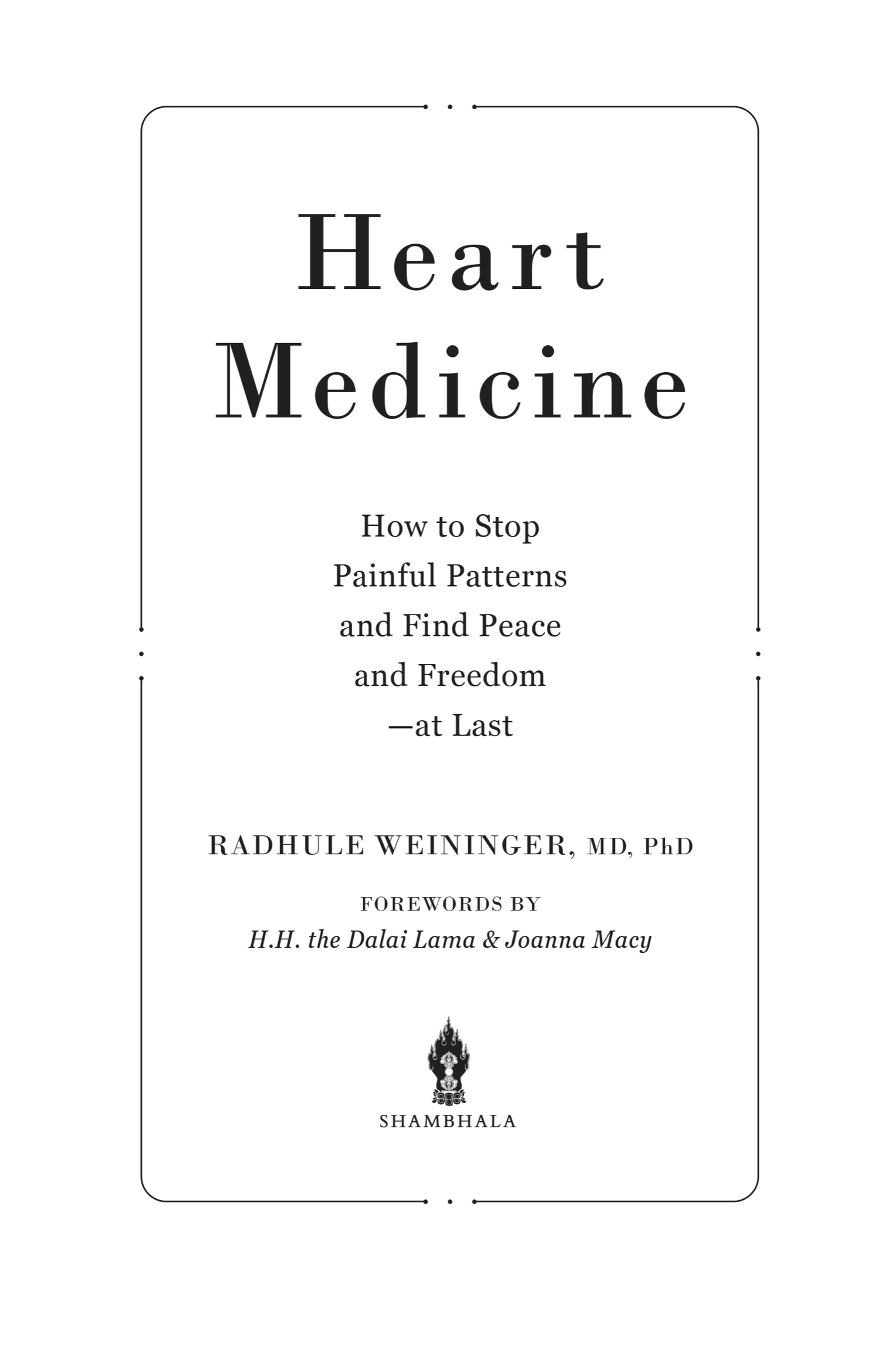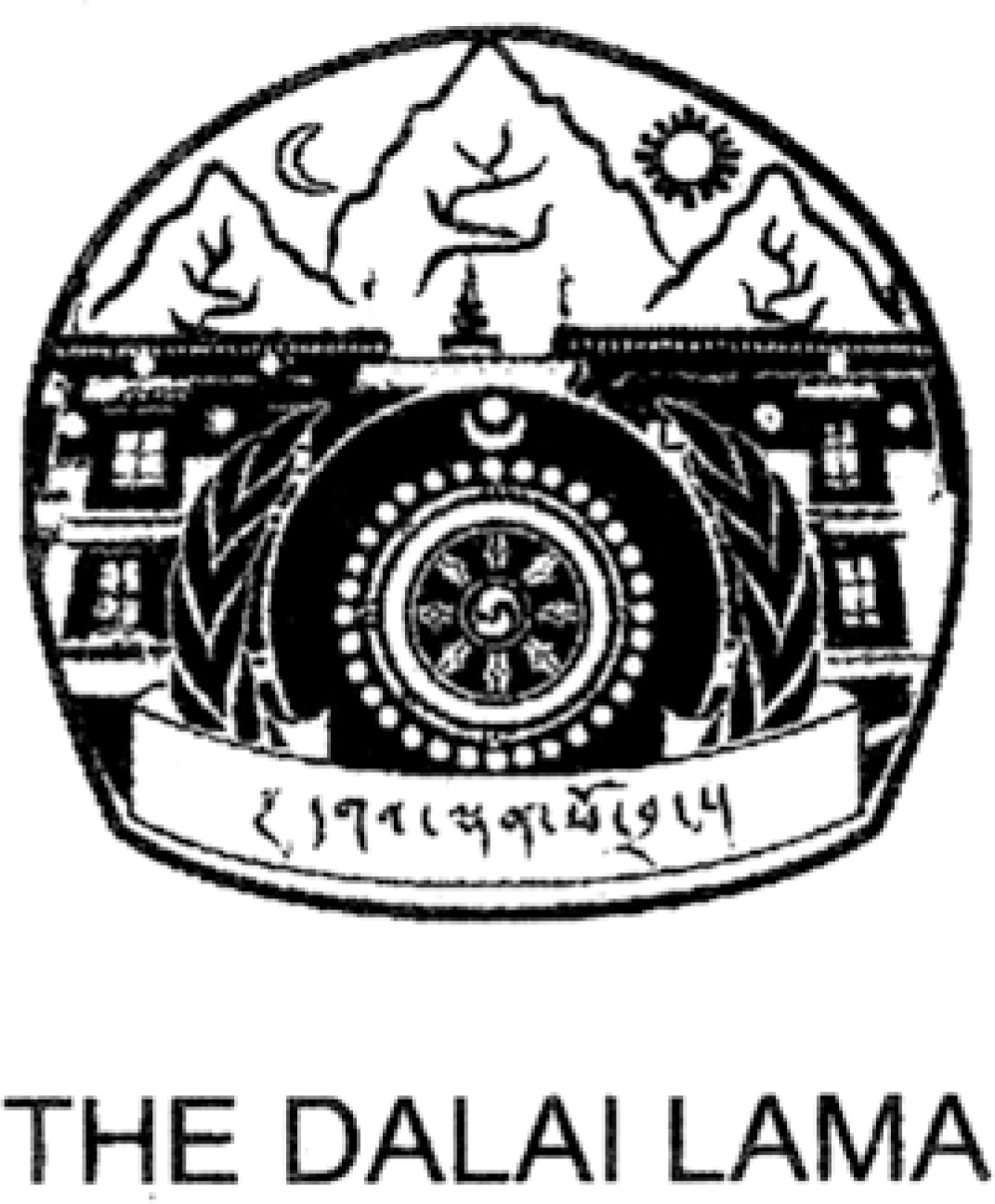Contents
Landmarks
Print Page List
Additional Praise for
Heart Medicine
This book is a manual for heartsall of oursthat carry long-standing painful patterns going all the way back to early life. Radhule Weininger shows us how our old and recent burdens can become stepping stones to wholeness and happiness. The practices are simple and yet deeply moving. I see Radhule Weininger as a bodhisattva of heart-healing, and in this new book we get to join her on that path.
DAVID RICHO , author of Triggers
Heart Medicine deftly and uniquely weaves psychological understanding and profound meditative techniques into a seamless web. This revolutionary book is an insightful and compassionate guide on our journey toward deeper healing and awakening.
DIANA WINSTON , Director of Mindfulness Education at UCLAs Mindful Awareness Research Center, author of The Little Book of Being
In Heart Medicine, Radhule Weininger has written a wise and profoundly compassionate book. Through her inspiring life journey, deep meditative experience, and insightful work with clients, Radhule has crafted a work of great healing potential. The personal stories of great struggles and growing understanding opens our hearts, and the many meditative exercises and instructions map a pragmatic path to greater peace and kindness in our lives. Highly recommended.
JOSEPH GOLDSTEIN , author of Mindfulness
Heart Medicine is a beautiful invitation to discover and heal the persistent patterns that create suffering in our lives. Radhule reminds us that when we touch what is painful with awareness, the armoring around our heart melts and frees us to reconnect with our full aliveness, wisdom, and love.
TARA BRACH , author of Radical Compassion
The wisdom and stories that Radhule Weininger has culled from her own work sit comfortably here with the deep insights that come from her own meditation practice and the practical skills that Buddhism offers to overcome our recurring painful patterns. We can only be grateful that, like the Buddha himself, she too is devoted to showing others the way beyond suffering.
FR. CYPRIAN CONSIGLIO, OSB CAM. , author of Prayer in the Cave of the Heart
Heart Medicine is a loving invitation to embark on and embrace a psychospiritual path of liberation from our psychological complexes. It goes to the epicenter of the psychological distress we suffer in our livesthose knots of emotional distress that recur over decades without relief. As a Buddhist teacher and a highly knowledgeable and skilled psychotherapist, Radhule Weininger insightfully blends psychodynamic understandings with carefully crafted meditations to help us break free from our complexes into a deeper sense of interdependence and service.
MARY WATKINS , author of Mutual Accompaniment and the Creation of the Commons
Shambhala Publications, Inc.
2129 13th Street
Boulder, Colorado 80302
www.shambhala.com
2021 by Radhule Weininger
Cover art: Sasin Paraksa/Shutterstock
Cover design: Daniel Urban-Brown
Interior design: Kate Huber-Parker
All rights reserved. No part of this book may be reproduced in any form or by any means, electronic or mechanical, including photocopying, recording, or by any information storage and retrieval system, without permission in writing from the publisher.
First Edition
For more information please visit www.shambhala.com.
Shambhala Publications is distributed worldwide by Penguin Random House, Inc., and its subsidiaries.
Library of Congress Cataloging-in-Publication Data
Names: Weininger, Radhule, author.
Title: Heart medicine: how to stop painful patterns and find peace and freedomat last / Radhule Weininger.
Description: Boulder: Shambhala, 2021. | Includes index.
Identifiers: LCCN 2021005759 | ISBN 9781611808230 (trade paperback)
eISBN 9780834843899
Subjects: LCSH: Awareness. | Self-acceptance. | Compassion. | Mindfulness (Psychology)
Classification: LCC BF311 .W3765 2021 | DDC 158.1dc23
LC record available at https://lccn.loc.gov/2021005759
a_prh_5.8.0_c0_r0
Contents
List of Guided Practices
The following practices in this book are also available for audio download at www.shambhala.com/heart-medicine-practices.
We all seek a happy life; no one wishes for hardship. When we are happy and at peace, we enjoy better health. We know from experience that our outlook on life has an important impact on how we feel when we are ill or when facing challenges. By reducing our tendency toward disturbing mental states, such as hatred, anger, or jealousy, we experience great peace of mind.
I have come to recognize that nurturing concern for others gives me a sense of satisfaction and joy. It is natural to care for oneself; however, being compassionate toward others is a more effective way of caring for oneself.
I hope that Radhule Weiningers book will inspire readers to build their confidence to lead a more meaningful life. Despite the difficulties we face in life, we should never dimmish our efforts. As a Tibetan proverb says, Persevere, even if you have failed nine times. We must continuously strive to improve ourselves.
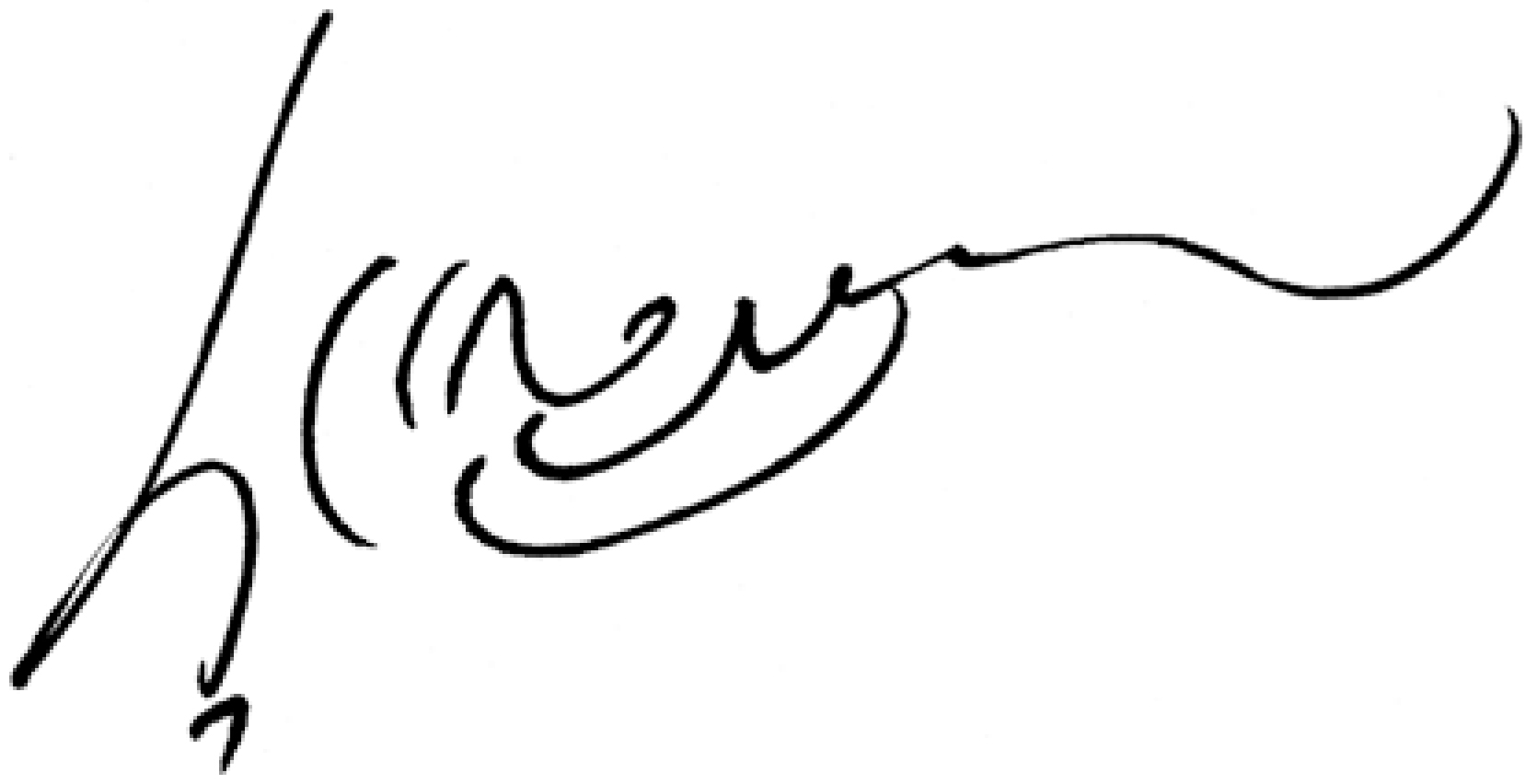
June 23, 2021
Foreword
Joanna Macy
There are those edgy personal hang-ups and overreactions that occasionally throw me for a loss and even sabotage a situation. They escape my comprehension and control, leaving me no option but to endure, with my self-respect in tatters. Until Radhule Weininger bravely wrote this book out of her own experience, I hadnt imagined they could be faced, understood, and actually resolved.
LRPPs, said aloud as lurps, is the onomatopoeic term chosen by Radhule to describe these knots, those trip wires and landmines in the psyche that when triggered can explode to cause great suffering and damage. LRPPswhich stands for Long-standing, Recurrent, Painful Patternsare always in the present tense, shockingly and frustratingly so. At the same time, they have an ancient, gnarled quality, like something one might stub ones toe on in the mud of the Jurassic.
So often, too often, our default when a LRPP comes crashing into our life is to slide down one of two helter-skelters: either that of self-blame and self-criticism (even self-loathing) or that of projecting our anger, judgement, and dislike onto others. Both compound and reinforce the underlying problem.
This book offers another possible way forward, a new way of seeing and responding to these primal entanglements in the psyche, a path to freedom based on mindfulness, self-compassion, intention, and choice. To what end? we might ask. So that we are freed from the suffering that comes when LRPPS are triggered and left out of mind and out of sight to gnaw and fester. And so that the healing energies of our creativity and compassion are liberated for the welfare of ourselves, of others, and of our world.

